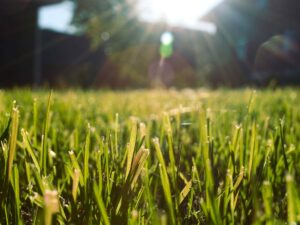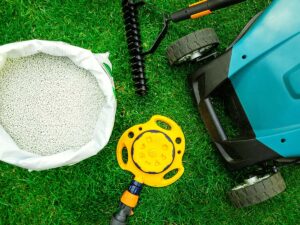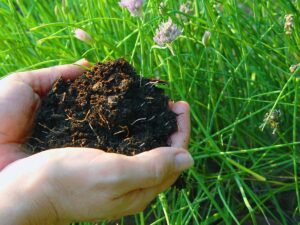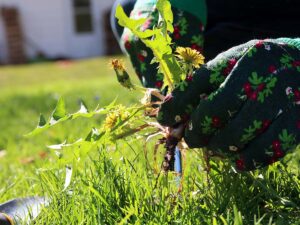Posts
Has your home been built in a neighborhood in the last 10 years? If you live in a newly built home, you’ve likely struggled to grow a consistently lush lawn. You’re not alone!
Tens of thousands of people struggle with the same issue every year. Thin bare areas, no matter how much you water the lawn, just don’t respond to water or fertilizer. But don’t stress — the team at Legacy Turf Care is here to help you with our wide selection of lawn care services. Get a free estimate and learn more about what might be preventing your lawn from growing!
Why Won’t a Lush Lawn Grow?
It all starts as soon as the builder sends in the grading company to clear the lots. As soon as the bulldozer scrapes the ground, the first ½-inch of topsoil that’s removed takes away over 100 years of natural composting of natural vegetation. It would take more than 100 years to naturally regain a new ½-inch layer of composted organic material.
Once the grading company is done scraping and packing the land, they have left the new homeowner with dirt that is not conducive to growing grass. Unfortunately it is a necessary evil that they have to accomplish. Without the grading company removing the organic top soil layer, your home would settle unevenly. They must peel back the organic layers of soil until they get down to a compactable layer of red clay. The larger a footprint they grade and pack, the better chance that your home will have a stable footprint for many years of level sitting upon.
Choosing the Right Seed Blend
There are many options to remedy this situation. First, one should make sure you are choosing an appropriate type of seed blend for your lot’s location. Consider the amount of sunlight (or lack thereof) that your lawn will receive over the course of the day.
Keep in mind that bermuda & zoysia grasses do not like shaded areas and will remain thin in those areas. Tall fescue grass does considerably better in the shaded areas, although a special shade seed of fescue is needed for the deeper shaded areas. The tall fescue shade mixes usually contain a blend of some of the following seeds: Chewing fescue, red fescue, annual ryegrass, perennial ryegrass, and Kentucky bluegrass.
Amend the Soil
Step two would be to amend the soil. Over time, start adding an organic top soil and incorporating it into the soil. If you choose to top dress your lawn, it is wise to not add over ⅛-inch layer of soil at a time. You don’t want to overwhelm the current grass that is trying to grow through the new layer of soil. If you are also aerating at the time of topdressing, a considerably thicker layer of soil can be laid.
Make sure whatever soil blend you choose that it is low in woody content. Often topsoil or compost blends will have wood chips mixed in. This type of soil is better suited for planting trees and shrubs. Your lawn needs finer material that is wood byproduct free.
Soil Testing & Lime
Soil testing can give you a roadmap of what is needed over the course of the next year. It will also tell you if the organic material you’ve added to your lawn is sufficient or if more amending and additional nutrients are needed. If you choose to do soil testing on your own, a soil sample kit can usually be purchased from your local agricultural cooperative extension or the state agricultural department.
And then don’t forget: Lime, lime & more lime. And just when you think you’ve added enough lime…add more lime! Carolina clay soil is notorious for having low pH. The lower your pH the more weeds you will have and the less your soil will utilize the nutrients and water that you feed it. A 6.5–7pH is considered the most favorable range for our soil and grass types. The best way to find out how much lime you need is a soil test. It will tell you how many pounds of lime your lawn needs. Don’t be surprised if it’s in the hundreds of pounds!
There are many things a homeowner can do to help their lawn grow in an area that has been graded and packed by a grading company. It is not an easy task, but with the right knowledge, it can be done!
Legacy Turf Care offers lawn care services including core aeration, soil testing, lime treatment, organic soil enhancers, and more! Ready for a green weed-free lawn? Schedule an estimate from our team and let Legacy Turf Care in North Carolina help you transform your existing lawn into a healthy lawn!





